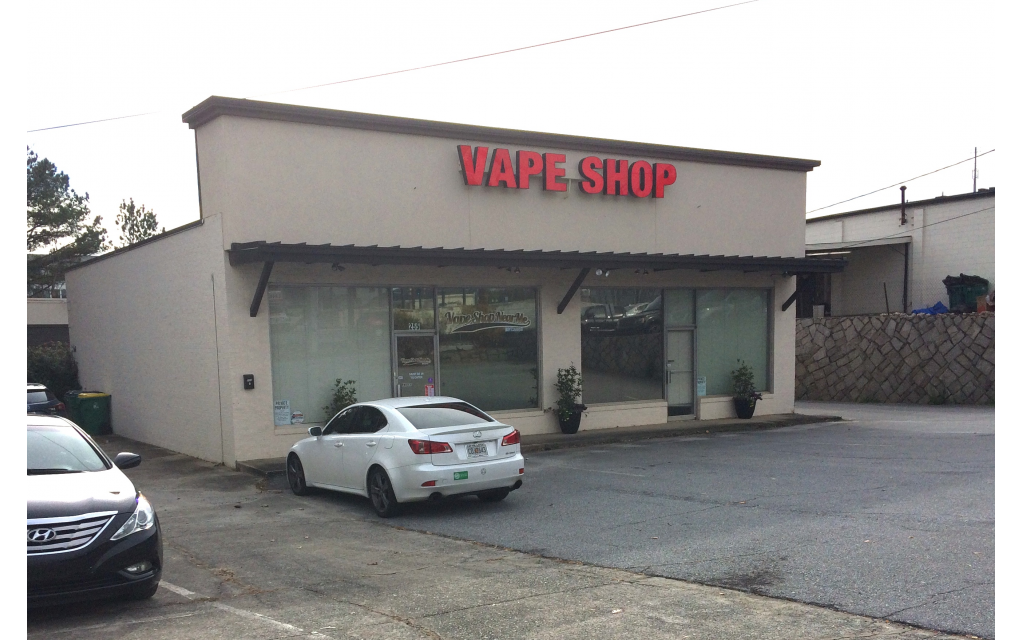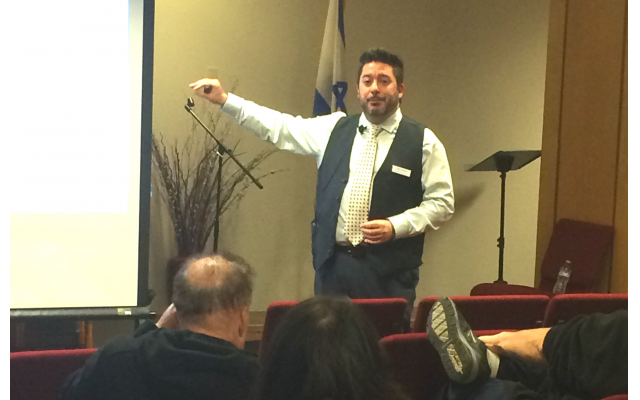Vaping Seminar Raises Awareness of Dangers
Dean Monteleone, a licensed professional counselor, led a teen drug counseling seminar and addressed the challenge of vaping among youth.
Parents and concerned educators last week heard a teen drug counseling expert remind them to keep open lines of communication if they want to succeed in confronting the challenge of vaping among adolescents.
The parent program Dec. 5 featured Dean Monteleone, a licensed professional counselor with more than two decades of experience treating substance abuse among teens. He is also the clinical director of Caron Atlanta, a drug treatment program, which was a co-sponsor of the evening.
“Conversation is paramount,” Monteleone said at the seminar on “The Reality of Vaping” at The Weber School. “Silence may kill them. That’s what we need to be mindful of.”
Monteleone cautioned parents to balance their concern with a sense of openness and empathy. He pointed out that intimidation and strict discipline can often be counterproductive. Parents should instead aim to build what he describes as a resilient child who can make healthy decisions for themselves.
“Focus on building the resiliency part, the distinguishing part,” he emphasized. “Focus less on control, because control is an illusion. It’s a tempting one, but it’s not real.”
The sudden rise in the use of vaping devices, particularly among teens, is a new and potentially troubling trend among young people, who often see the practice as being harmless and a safe alternative to the use of tobacco products.
But the danger he emphasized is what has been mixed in with the water vapor the devices produce. Not just nicotine can be an additive, but any product including dangerous and addictive drugs that can be mixed with a solvent, can be vaporized.

By the time they reach their senior year in high school more than 31 percent of students actively use marijuana and 25 percent use at least one other illegal drug, Monteleone said. Often, they start with vaping devices.
Many young people start using vaping devices in response to peer pressure. Although they often begin as a way to gain social acceptance, changes in how the devices are used should raise a red flag.
“At a certain point you may start to use those chemicals for a different use than they were intended. That’s a key factor for parents to be aware of,” Monteleone cautioned. “When you are talking with your sons or daughters about chemical use, ask them why they do it. The answers you get can be very, very powerful. If you start to hear answers like ‘It helps me to prepare for my tests,’ now they are coping with anxiety with a chemical, or they’re sad and it makes them feel better, that’s when you start to get into dependency.”
Recognizing the danger signs, early in the use of vaping products, is critical, because continued use can be an important factor in neurological development.
“The teenage brain doesn’t fully develop until the early to mid-20s,” he empathized. “If I am putting toxic chemicals, addictive chemicals into my brain six, seven, eight years before it is fully developed, it’s causing damage, brain damage. If I continue to damage my brain, the damage goes up exponentially.”
The evening at Weber was a community-wide effort co-sponsored by a number of Jewish day schools, including Weber, JumpSpark, which develops innovative programs for teens and their parents, the Caron Foundation and Jewish Family & Career Services’ Helping Atlantans Manage Substance Abuse (HAMSA).




comments